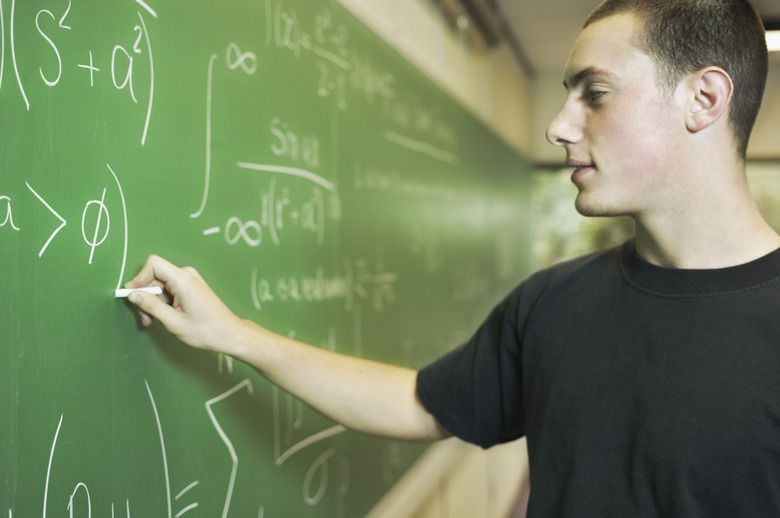The Need For Basic Math & Science Skills In College Students
For students pursuing degrees in the humanities, math and science classes might seem like tedious distractions, and basic math and science skills can seem wholly unnecessary. College students may begin school unprepared for math and science classes. A 2011 Microsoft survey found that, even among students pursuing math and science-related degrees, only one in five felt that they were well-prepared for college math and science. This lack of preparation can limit students' degree courses and make basic college classes more challenging than they should be.
Core Classes
Core Classes
Even students who never want to touch a math or science book again will need basic math and science skills to complete their degree. In addition to the requirements for majors, most colleges and universities require students to complete core classes, including classes in math and science. Students who lack basic math and science skills will struggle in these classes, and this can lower their grades and even delay graduation.
Thinking Skills
Thinking Skills
Math and science teach new ways of thinking. Both place a strong emphasis on logic and clearly demonstrating assumptions and basic principles. Logical thinking is key in almost every field, and students who master basic mathematical and scientific thinking may do better in other classes. For example, a philosophy student who has mastered the logic of algebra and the importance of the scientific method can apply that knowledge to clearly and succinctly argue a philosophical point without adding in assumptions, opinions or emotions.
Uses
Uses
It's impossible to completely disentangle math and science from other classes. Students studying literature will use math to dissect and write poetry. In history and social studies classes, math skills can help students read graphs and charts. Scientific reasoning can help students think critically, questioning claims made in government, philosophy and sociology classes. In many fields, including psychology, sociology, philosophy and other social sciences, students must read studies and understand their results — a skill that requires a basic background in both science and math.
Graduate School Admissions
Graduate School Admissions
Students who plan to go to graduate school can improve their chances of admission if they master basic math and science skills. The GRE General Test has a math section, and doing well on this test can improve a student's chances of acceptance to grad school. Students interested in law school must take the LSAT, a test that focuses heavily on logical reasoning — a skill students master in math and science classes.
Cite This Article
MLA
Thompson, Van. "The Need For Basic Math & Science Skills In College Students" sciencing.com, https://www.sciencing.com/the-need-for-basic-math-science-skills-in-college-students-12751440/. 3 May 2013.
APA
Thompson, Van. (2013, May 3). The Need For Basic Math & Science Skills In College Students. sciencing.com. Retrieved from https://www.sciencing.com/the-need-for-basic-math-science-skills-in-college-students-12751440/
Chicago
Thompson, Van. The Need For Basic Math & Science Skills In College Students last modified August 30, 2022. https://www.sciencing.com/the-need-for-basic-math-science-skills-in-college-students-12751440/
